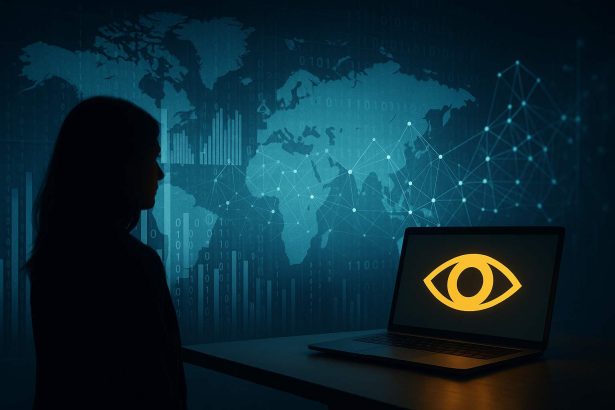Long before Cambridge Analytica became a global headline, a quieter revolution was already reshaping political power.
Across democracies, a new industry was emerging — one that combined psychology, behavioral science, data analytics,
and digital advertising to influence voters at scale.
Today, this ecosystem is known as the digital influence industry, and it has permanently transformed
how campaigns are run, how messages spread, and how citizens are targeted.
- From traditional campaigning to algorithmic persuasion
- The business behind digital persuasion
- Micro-targeting: the weapon of choice
- Psychographic modeling: the Cambridge Analytica legacy
- The new persuasion toolbox
- Where influence crosses into manipulation
- The global spread of digital political consulting
- Should political influence be regulated?
- What voters can do to stay aware
- Elections now happen in the shadows
Political consulting is no longer about speeches and billboards.
It is about algorithms, persuasion metrics, micro-segmentation, and real-time behavioral prediction.
This article exposes how that transformation happened — and why its consequences still echo across the internet.
From traditional campaigning to algorithmic persuasion
Before the rise of digital platforms, political outreach relied on broad messaging: rallies, television ads,
printed leaflets, radio slots, and door-to-door conversations.
Campaigns crafted narratives designed to appeal to millions of voters at once.
The internet rewired that logic.
Instead of one message for everyone, consultants began designing thousands of micro-messages tailored to
specific groups — and sometimes specific individuals.
With access to online data, political strategists could:
- Identify voter segments with extreme precision
- Predict which emotions would trigger engagement
- Test dozens of messages simultaneously
- Deploy ads based on personality traits, fears, desires, and habits
This shift turned political communication into a data-driven science — and turned voters into behavioral datasets.
The business behind digital persuasion
The digital influence industry is not limited to political parties.
It includes a complex network of:
- Political consulting agencies
- Data brokers
- Social media marketing firms
- Psychometric researchers
- AI-driven ad-tech platforms
- Influence-operations contractors
These actors collaborate to create psychological profiles and target voters with extraordinary precision.
Some specialize in scraping publicly available data; others build models that interpret browsing behavior.
The result is a global marketplace where influence is engineered, optimized, and sold.
Micro-targeting: the weapon of choice
Micro-targeting is one of the industry’s most powerful tools.
It uses data to segment individuals into extremely granular categories — not just “parents,” “teachers,” or “retirees,”
but segments like:
- “Anxious new parents concerned about safety”
- “Disillusioned young voters frustrated with the economy”
- “Confident traditionalists susceptible to patriotic themes”
Each segment receives a tailored narrative designed to maximize emotional impact.
Two people living in the same city, voting in the same election, may see completely different political worlds —
each one filtered through the lens of predictive analytics.
Psychographic modeling: the Cambridge Analytica legacy
Cambridge Analytica did not invent psychographic profiling, but it brought the concept to global attention.
The company claimed it could predict personality traits — such as openness, neuroticism, or agreeableness —
using only online behavior.
These traits were then used to tailor political messages in ways believed to be more persuasive.
Whether or not the firm’s capabilities were overstated, its methodology exposed an uncomfortable reality:
personal data can be weaponized to influence not just what people think, but how they think.
The new persuasion toolbox
Modern political consulting firms use a wide array of digital techniques that go far beyond simple advertising:
- A/B testing at massive scale — measuring which message produces the strongest emotional response
- Sentiment analysis — detecting public mood through social media patterns
- Lookalike modeling — finding new voters who resemble existing supporters
- Dark posts — targeted ads visible only to specific individuals
- Engagement farming — provoking outrage or excitement to boost message reach
This toolbox turns political messaging into a real-time psychological experiment — conducted not in a lab,
but across entire populations.
Where influence crosses into manipulation
Not all digital persuasion is harmful.
Campaigns have always tailored messages to different audiences.
But the scale, speed, and secrecy of modern influence operations raise ethical concerns:
- Lack of transparency — voters do not know why they see certain political messages
- Inequality of influence — powerful players can quietly target vulnerable groups
- Polarization — customized narratives can deepen social divides
- Emotional exploitation — messages are optimized to trigger fear, anger, or insecurity
When persuasion becomes invisible, accountability disappears — and so does informed consent.
The global spread of digital political consulting
While Cambridge Analytica gained most attention for its work in the U.S. and U.K., similar firms now operate in:
- India
- Brazil
- Nigeria
- Philippines
- Mexico
- Eastern Europe
In some regions, these firms blur the line between political strategy, disinformation, and influence operations.
Governments, corporations, and private clients all hire them — creating a murky ecosystem where information, persuasion,
and psychological pressure merge.
Should political influence be regulated?
Regulators around the world are struggling to catch up with the digital persuasion industry.
Proposals include:
- Transparency rules for political advertising
- Restrictions on micro-targeting of sensitive traits
- Bans on covert psychological profiling
- Mandatory disclosure of audience segments used in campaigns
The challenge is balancing free speech with the need to protect democratic processes from invisible manipulation.
What voters can do to stay aware
- Be skeptical of political messages that appear hyper-targeted or emotionally charged
- Check whether an ad is being shown to you alone or to a broad audience
- Use privacy tools that limit behavioral tracking
- Diversify news sources to escape algorithmic bubbles
You cannot completely avoid digital profiling — but you can reduce how much influence it has over you.
Elections now happen in the shadows
The digital influence industry has rewritten the rules of political campaigning.
What once happened in public — speeches, debates, open messaging — now happens in the shadows of algorithms
and data pipelines.
Elections are increasingly fought on invisible battlegrounds where voters are segmented, studied, and targeted
with unprecedented precision.
As the legacy of Cambridge Analytica showed, political consulting firms now hold the power to shape not simply
public opinion, but the very structure of public discourse.
Understanding this industry is the first step toward building a more transparent, accountable digital democracy.







